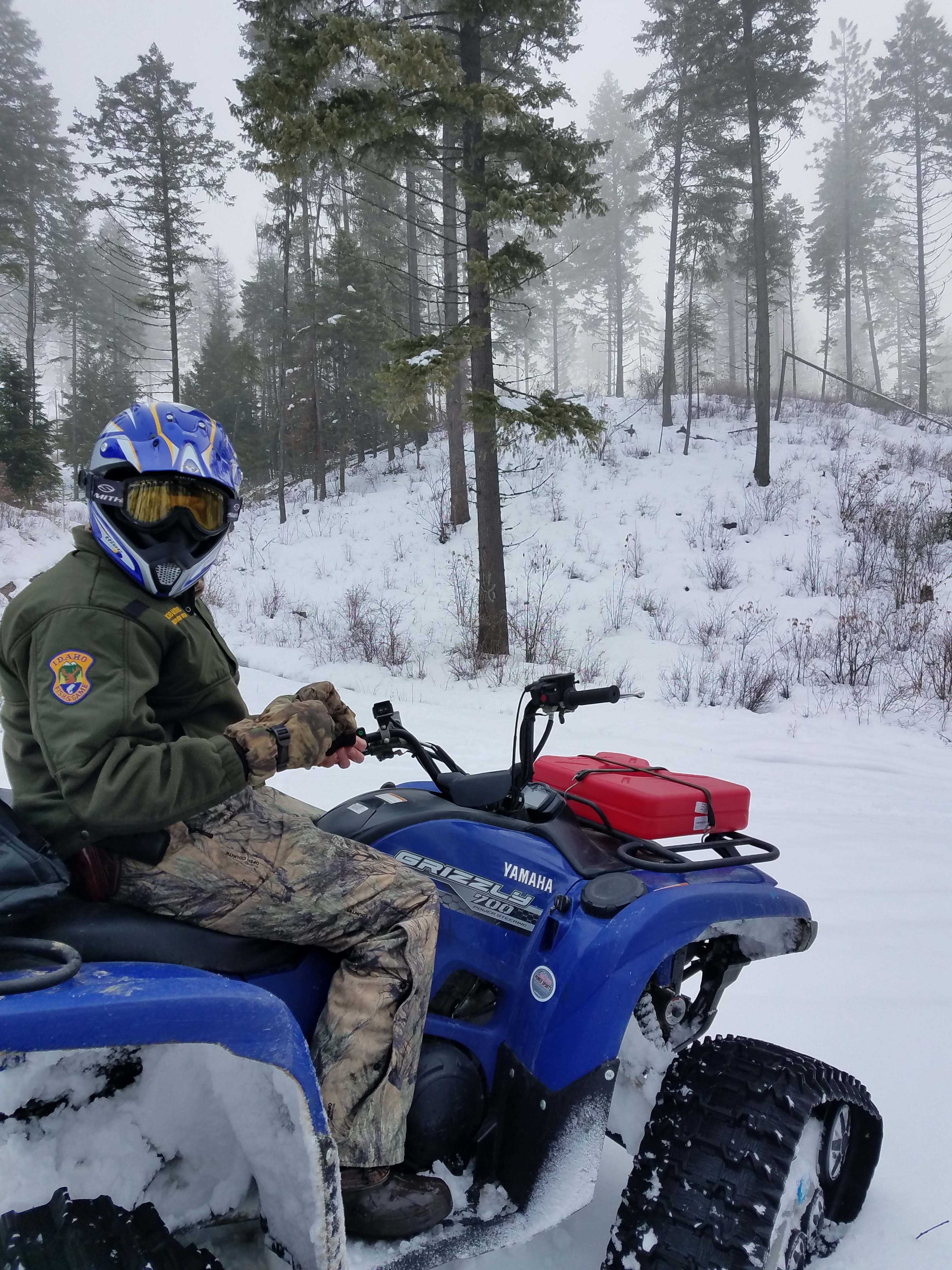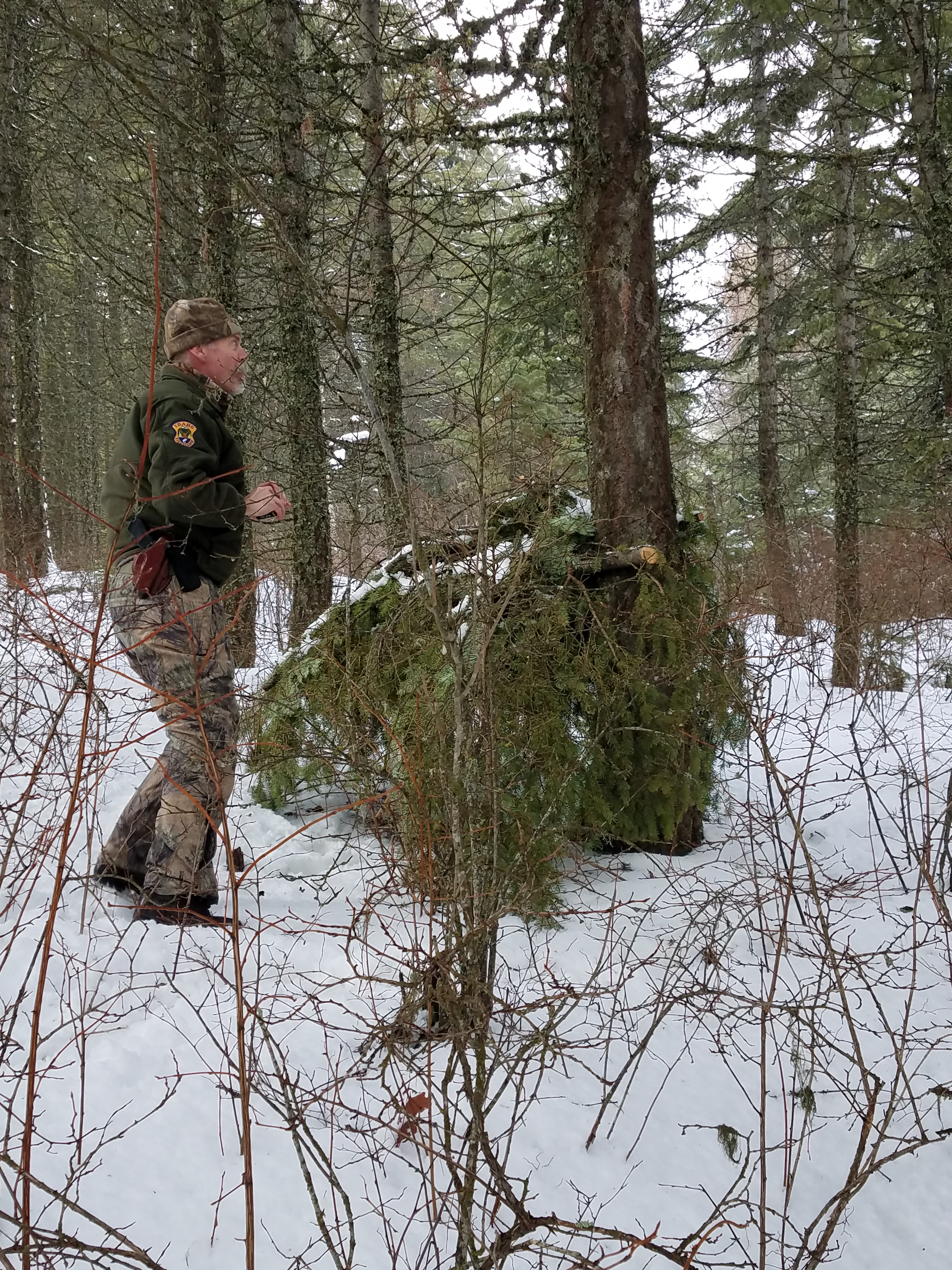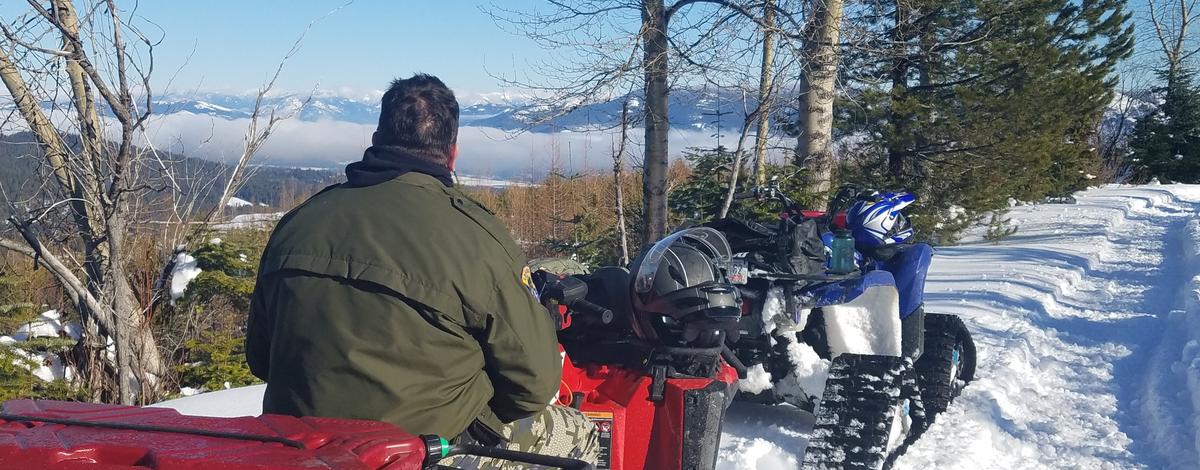As a Conservation Officer, I am sometimes asked during the winter, “What keeps you guys busy this time of year?” There is no down time for COs, even during the winter. With the population of Idaho hitting 1.8 million people, the demand on officers’ time is increasing every year
One of the primary responsibilities for COs is compliance checks on hunting, fishing, and trapping activities. During the winter, we are conducting trapping compliance checks, meaning we check trap lines to determine all wildlife laws are being followed. This ensures that trapping activity is fair for the animals, other trappers and safe for the public.
A typical trap check day for an officer involves identifying areas of trapping activity, species targeted, and the habitat type of the targeted species. The main species targeted in the Panhandle are bobcat, wolf, and pine marten, each having their own unique trap setups and equipment.
Trap checks are often conducted from either a snowmobile or a tracked ATV. Tracked ATVs are becoming more popular with officers due to their versatility: ATVs now have become an all-season vehicle, transferring wheels for tracks and reducing the need for all officers to have both an ATV and a snowmobile. Are tracked ATVs an equal substitute for a snowmobile? Not at all, and that’s why we keep a few in the fleet.

COs look for signs of trapping activity and investigate traps for compliance. We use discretion when checking traps, intentionally limiting impacts on a site to ensure trapper success. Some examples of reducing our foot print on a trap site are approaching the trap along the same path, and the same method, as the trapper: on foot, snowshoes, or a machine. COs check for the required trap tag attached to the trap or chain if we need to find out the trappers information, with minimal contact with the trap.
Many trappers work with their local officer so that the CO knows before heading to the field where trappers are working and what they are targeting. That communication can greatly reduce COs impact on trap sites and reduce public conflict.

If you come across a trap and believe something is illegal please do not disturb the trap site. Contact your local CO with GPS coordinates and allow that officer to determine if something is illegal. Idaho code states that tampering with a trap site or trap is illegal so please use discretion.
COs love to get in the woods during the winter. Not only are we paid to conduct compliance checks but the public, including trappers, expect that of us. Just between you and me, it’s nice to be out of cell phone coverage too!
If you have questions, please contact the Coeur d'Alene Regional Fish and Game Office at (208) 769-1414.

